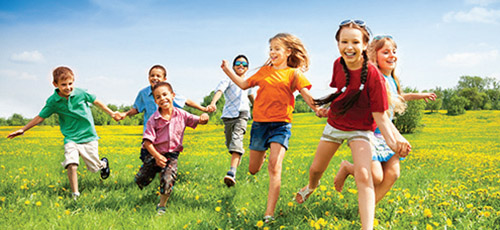
For many children, fond memories of summer involve going to camp. In fact, approximately 11 million children attend day or resident camp during summer. For most parents, spring is the time to prepare for camp, from deciding which camp to send them to, to preparing their child for being away from home for the first time.
Camp be a wonderful, life-enhancing experience. According to the American Academy of Pediatrics, summer camp can build a child’s self-esteem, enhance relationship skills and develop leadership potential.
Medical Needs
It is important for parents to carefully decide which camp is best for their child, but it is also important for them to prepare them regarding any health issues. Most camps require that a child have a physical exam within the last 24 months. Those children with chronic medical problems, such as diabetes, asthma, seizures, severe allergies, congenital problems and low immune systems might require a clearance from their pediatrician before going to camp.
It is also important for parents to make sure that they have ample supplies of all the medications their children will need during their time away. This would include both daily medications and medications taken on an emergency basis. It is also the responsibility of parents to establish individualized protocols regarding any special health needs their children may have. This could include precautions for certain food allergies, tailoring the activity schedule of their child if he/she has any disabilities and even directly speaking to the camp directors regarding any potential emergencies that may arise.
For children with special needs, such as autism or attention-deficit-hyperactivity disorder, there are special camps that are geared for their unique needs. These camps can help children with special needs bond with others that share their problems, from bee stings to sprains to diarrhea. Sometimes, they’ll need to give children medication if necessary.
Handling Homesickness
Homesickness is another major issue for children attending camp. It is a natural feeling for any person away from home, but for some children it can lead to stress that can hamper the positive experience they can get from being at camp. According to the American Camp Association, more than 90% of children feel some degree of homesickness at camp. However, up to 20% of children report serious levels of distress.
There are ways to help prepare children emotionally for camp. Parents should involve their children in the process of choosing and preparing for camp. They should keep a positive attitude regarding the enjoyable experiences their children will have at camp. Parents can have their children practice being away from home by spending the night at a relative’s or friend’s home. They should avoid negative attitudes, such as having worries that they will not enjoy camp. Another thing to avoid is setting up a “pickup plan,” as that can also set the expectation that the child will not like camp.
For any child, camp can be a fun, once-in-a-lifetime experience. It is a chance to get away from home and bond with others, developing lasting relationships. Children can develop a more intimate bond with nature and the environment than that they may find at home. When they come home, they will have cherished memories that will last a lifetime.
By Emmanuel Martakis, MD
Dr. Emmanuel Martakis is a pediatrician at Tenafly Pediatrics.










